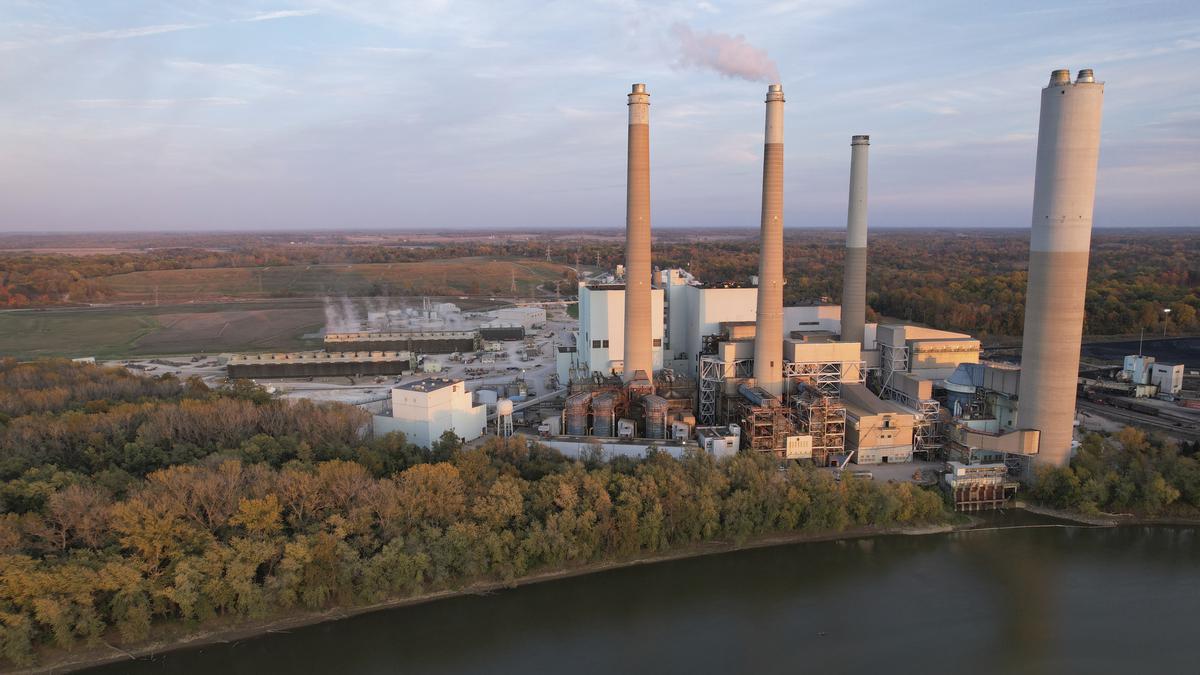Table of Contents
Steam rises from the AES Indiana Petersburg Generating Station, Wednesday, Oct. 25, 2023, in Petersburg, Ind. In a little more than five years – sometime in early 2029 – the world will likely be unable to stay below the internationally agreed temperature limit for global warming if it continues to burn fossil fuels at its current rate, a new study says.
- Climate change is accelerating, and the world will cross the 1.5 degrees Celsius (2.7 Fahrenheit) warming threshold this decade, according to research published on Thursday that scientists said should raise alarms at this year’s COP28 climate talks.
- Countries pledged in the 2015 Paris Agreement to hold global warming to within 1.5C above pre-industrial temperatures, but the new paper by a team of scientists, including researchers from NASA and Columbia University, adds to evidence suggesting that this goal is already out of reach.
- Most emissions scenarios under the United Nations Intergovernmental Panel on Climate Change (IPCC) envision the world breaching 1.5C during the 2030s.
“The 1.5C limit is deader than a doornail,” said study co-author James Hansen of Columbia University’s Earth Institute, who was among the first scientists to alert the world in the 1980s to the climate-warming impact of greenhouse gases.
- “The shortcoming of our scientific community is to not make clear to the political leaders what the situation is,” he said.
- The world has already warmed by nearly 1.2C (2.2F) above preindustrial temperatures.
- The study has received mixed feedback from other climate scientists. Some questioned its findings, with Michael Mann of the University of Pennsylvania saying in a blog post that they were “very much out of the mainstream”.
- The new report comes after months of extreme weather shocks worldwide, from heatwaves in China to severe flooding in Libya, with 2023 set to be the warmest year on record.
- Countries will gather later this month in Dubai for the annual U.N. climate summit to discuss global policy efforts to rein in greenhouse gas emissions.
Significance of the Findings
The findings of this research are of significant importance as they indicate that the world is on track to surpass the 1.5 degrees Celsius threshold for global warming much sooner than expected. This information should serve as a wake-up call for policymakers, urging them to take urgent action to mitigate the effects of climate change.
Key Features and Objectives
The study highlights two key features: the Earth’s climate sensitivity to rising carbon dioxide levels and the impact of declining sulphur dioxide emissions. The objective is to provide a comprehensive understanding of the current state of climate change and its potential consequences.
Effects and Implications
If the world crosses the 1.5 degrees Celsius threshold, the consequences could be catastrophic. It would lead to more frequent and severe heatwaves, droughts, floods, and storms, resulting in the loss of ecosystems, biodiversity, and human lives. Rising sea levels would threaten coastal communities, and food security would be at risk due to the impact on agriculture.
Pros and Cons
One potential pro resulting from this study is that it raises awareness about the urgency of climate action. It can serve as a catalyst for governments and organizations to implement stricter emission reduction policies. On the other hand, a con could be the controversy surrounding the findings, with some scientists questioning their validity. This skepticism may delay coordinated global efforts to combat climate change.
Fun Fact
A fun fact related to climate change is that polar bears are increasingly becoming endangered due to the melting Arctic ice caused by rising temperatures. These majestic creatures rely on sea ice for hunting and survival.
Mutiple Choice Questions
1. According to the information provided, when will the world likely be unable to stay below the internationally agreed temperature limit for global warming if it continues to burn fossil fuels at its current rate?
a) In early 2029
b) In late 2023
c) In the 2030s
d) In 2050
Explanation: The information states that in a little more than five years – sometime in early 2029 – the world will likely be unable to stay below the internationally agreed temperature limit for global warming if it continues to burn fossil fuels at its current rate. Therefore, the correct answer is option a) In early 2029.
2. What was the goal of the 2015 Paris Agreement regarding global warming?
a) To hold global warming to within 2.7 degrees Celsius
b) To hold global warming to within 1.5 degrees Celsius
c) To hold global warming to within 3 degrees Celsius
d) To hold global warming to within 5.4 degrees Celsius
Explanation: The information states that countries pledged in the 2015 Paris Agreement to hold global warming to within 1.5 degrees Celsius above pre-industrial temperatures. Therefore, the correct answer is option b) To hold global warming to within 1.5 degrees Celsius.
3. What does the study suggest about the 1.5 degrees Celsius limit?
a) It is easily achievable.
b) It is already out of reach.
c) It will be reached by 2030.
d) It will be reached by 2050.
Explanation: The study suggests that the 1.5 degrees Celsius limit is already out of reach. Therefore, the correct answer is option b) It is already out of reach.
4. How much has the world already warmed above preindustrial temperatures?
a) Nearly 1.5 degrees Celsius
b) Nearly 1 degree Celsius
c) Nearly 2 degrees Celsius
d) Nearly 3 degrees Celsius
Explanation: The information states that the world has already warmed by nearly 1.2 degrees Celsius above preindustrial temperatures. Therefore, the correct answer is option b) Nearly 1 degree Celsius.
5. What factors have contributed to the study’s findings?
a) Underestimation of Earth’s climate sensitivity and declining sulphur dioxide emissions
b) Overestimation of Earth’s climate sensitivity and increasing sulphur dioxide emissions
c) Underestimation of Earth’s climate sensitivity and increasing sulphur dioxide emissions
d) Overestimation of Earth’s climate sensitivity and declining sulphur dioxide emissions
Explanation: The study’s findings result from two factors: underestimation of Earth’s climate sensitivity and declining sulphur dioxide emissions. Therefore, the correct answer is option a) Underestimation of Earth’s climate sensitivity and declining sulphur dioxide emissions.
Brief Summary | UPSC – IAS
A new study warns that the world will cross the 1.5 degrees Celsius global warming threshold this decade due to accelerating climate change. The study, conducted by scientists including those from NASA and Columbia University, adds to evidence suggesting that the goal set out in the 2015 Paris Agreement to limit warming to within 1.5C is already out of reach. The study attributes the likelihood of surpassing this limit to the underestimation of the Earth’s climate sensitivity to rising carbon dioxide levels and a better understanding of ancient climate data. The findings have prompted calls for urgent action at the COP28 climate talks.




